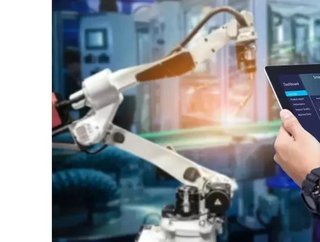Australia’s Advanced Manufacturing is Creating Careers

Manufacturing is critical to the Australian economy, and it is a vital part of Australia’s recovery from the pandemic induced recession and high unemployment. Manufacturing is crucial to virtually every supply chain and adds value across all industries. However, research by the Australia Institute recently ranked Australia lowest in the OECD for manufacturing self-sufficiency. Despite our world-class skills and amazing natural resources, manufacturing in Australia has stagnated somewhat.
COVID-19 very quickly exposed the vulnerabilities of the Australian manufacturing sector and the weakness of our supply chains. The Australian Government has responded by launching the $1.5bn Modern Manufacturing Strategy, during the recent Federal budget, which will help strengthen and advance the Australian manufacturing industry to make it more competitive, resilient, and put it in a firm position to grow.
Investing in Advanced Manufacturing Skills
The Modern Manufacturing Strategy is at the heart of the government’s JobMaker plan, which is designed to boost the employment prospects of Australians aged 16 to 35, supporting around 450,000 jobs. The JobMaker Hiring Credit goes to the businesses creating the new jobs.
The government aims to deliver on its strategy by enhancing work-integrated learning in advanced manufacturing. The objective is to strengthen the link between training and future industry needs, and significantly lift workforce skills to meet the requirements of the Fourth Industrial Revolution. Consequently, it has announced a $7.2mn extension of the advanced apprenticeship pilot program across the country to teach students the advanced skills and specialist knowledge they will need for manufacturing jobs of the future.
Boosting vocational training, particularly as part of an Industry 4.0 future, we can encourage the next generation into robotics, artificial intelligence, automation and advanced manufacturing. This will ensure better efficiencies are achieved with minimal impact, providing a boost to both the top-line and bottom-line of organisations, and encourage more innovation in traditional manufacturing.
Increased Automation is Key
Remote working is not going anywhere, and because of this, there is a greater need for increased automation across production lines. All machinery needs to be accessible online and integrated with a cloud-based Enterprise Resource Planning (ERP) platform, which is essential for remote automation processes to work. Therefore, upskilling the current workforce in how an ERP system integrates with machinery and other advanced manufacturing systems is essential.
The required investments in Australia’s future workforce, businesses and economy are long overdue but very welcome, none the less. Unfortunately, the advanced apprenticeship training program will not solve the immediate COVID related unemployment issues, and skills mismatch in the short term. But we are now heading in the right direction to rebalance our economy back towards being one focused on growing and advancing our manufacturing sector again, so we can become a force to be reckoned with not only in this region but around the world.
Achieving the Vision for Australian Manufacturing
Over the next two decades, Australia's manufacturing sector will evolve into a highly integrated, collaborative and export-focused ecosystem that provides high-value customised products and components for global value chains. The sector will focus on pre-production, including design and Research and Development (R&D) and post-production, including after-sales services, value-adding, sustainable manufacturing and low volume, high margin customised manufacturing.
There are immense strategic growth opportunities for Australia's manufacturing sector. Turning them into reality will require significant technological innovation and commitment by public and private research communities, as well as the businesses themselves.
The advanced manufacturing technologies we should be focusing on to realise future growth opportunities include robotics, automation, augmented and virtual reality, sensors, data analytics, ERP, advanced materials and additive manufacturing.
To be in a position to realise the full potential of these technologies, Australian manufacturers must transform their operations in several ways. In terms of talent, this means investing in new skills, knowledge and practices, attracting and retaining employees with skills in digital literacy, leadership, customer service and STEM capabilities.
There also needs to be a greater focus on global value chains, an improvement in business-to-business collaboration, without fear of local competition, as well as improving the connection between the manufacturing and research sectors. The manufacturing sector is acutely aware of its pain points, but it requires better collaboration with the research sector to understand what science and technology exist that could inspire new solutions. In an increasingly competitive global landscape, continual improvement and investment in R&D is the only way for Australian manufacturers to be competitive nationally and globally.
Transforming Australia’s manufacturing sector is not going to happen in the short-term, with many industries having experienced huge challenges for many years. Regardless of the actions of the sector over the next few years, positioning Australian manufacturing for sustainable competitiveness is a long-term vision. Consistent and supportive policies and sustained investment from the government are required over the next two decades for the Australian manufacturing sector to achieve its advanced manufacturing aspirations that create rewarding future careers.
- Top 10: Chief Manufacturing OfficersProduction & Operations
- Aerospace Insight: Where does Boeing make all of its PlanesProduction & Operations
- Comau's Automation Solutions for Outside of ManufacturingAI & Automation
- Toyota Partners with Artelys to Streamline Post-ProductionProcurement & Supply Chain






